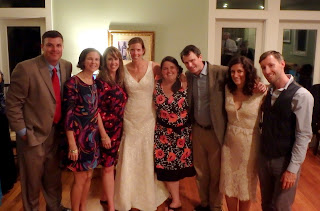From the end of October until mid-February, I managed to
only leave my district twice; once for a Thanksgiving celebration with some
friends at Malealea Lodge and for my incredible holiday trip to Durban and St. Lucia. I went four
months only passing through Maseru on my way to and from Thanksgiving at
Malealea. Although there are many things that can only be bought in Maseru, I
loved being at home in my community and my district.
Since mid-March, however, I have made nearly weekly trips to
Maseru-all of them overnight. To be honest, despite getting a lot of important
work done while at the Peace Corps office, I am quite sick of the city and the
travel. Each trip takes between four and seven hours each direction. Finally,
the regularity of these travels is tapering.
 |
| So much of my life in the last few months has been like my friend Dani in this photo...on the road. |
So, given my clear affinity for the city and for entire days
spent traveling between my village in Botha Bothe and Lesotho’s capital, why on
earth am I going so often?
Sometime in December, I messed up my knee. I wrote it off as
a torn or pulled hamstring and relaxed my then intense workout schedule. Over
the ensuing two months, the knee alternated between mostly fine, a little
uncomfortable, and possessed. Finally, I acknowledged it was getting worse and
contacted the Peace Corps Medical Officer [PCMO].
Having a real medical issue—more than a quick trip to the local ER—has been one of my
two biggest anxieties during service. I have no qualms about being far from
medical care; with a decade of wilderness medical responder certificates, I am
pretty relaxed about the possibility of injury or illness in a remote setting.
Instead, I am terrified something could happen that would “make me unfit for
service,” in other words, the idea of being sent home for medical care gives me
hives.
So, anxiety aside, I have been working closely with our PCMO
for the last three months. I was sent to Bloemfontein, South Africa to a
specialist, which determined that my knee was surgical. PC Washington, PCMO,
and I felt a more conservative plan might be better, so we have been trying
physiotherapy, which is only available in Maseru.
 |
| Styling with a snazzy red racing stripe to help my IT band behave during a week of Physio. |
Weekly sojourns away from my site make things difficult. It
is hard to explain to people who only see a doctor for emergencies and life
threatening conditions that I am leaving the village every week to see a doctor
when I do not appear sickly. When I tell them there is a problem with my knee
and it is incredibly painful, they are sympathetic and empathize with me by
sharing the joints that cause them pain. I have no doubt that some have far
more serious conditions than mine, yet physiotherapy or surgery will never be a
part of their lives.
Traveling to Maseru for two to three days each week also
means that when I am in village, I am busier than usual, trying to fit
everything into a smaller time frame. I find myself juggling different meetings
and trainings around when I am available. As a result, I end up with no time
for rest or for personal maintenance in a world where typical chores take more
time than my schedule allows.
 |
| Clothes, bedding, and more on the line. |
At one point, I had gone over two weeks without doing
laundry. Since we had not had rain, I needed daylight to walk to the spring to
complete the chore. With days getting shorter as winter approaches, that simply
did not exist for me. (I also secretly had reservations about the walk with
heavy wet laundry making my knee worse.) Thankfully my brother took notice of
my dilemma and brought me water to do my laundry. I did my scrubbing by
candlelight Sunday night and early Monday morning before hanging everything on
the line.
I then spent the day in town with some women from my
organization as we worked on our chicken project. I was feeling like I could conquer the world and get a million
things done in a day until I was waiting at the taxi rank for a ride home and a
huge storm rolled in. By the time I reached my village, I had given up. I knew
that everything on the line would be drenched and that with my departure for
Maseru at dawn the next morning, I had no idea how I would keep everything from
growing mildew.
I felt completely overwhelmed until I rounded the corner of my
hut to find my clothes gone. I have never been so grateful to find an empty
clothesline. My brothers had no idea where my clothing and bedding were, but I
knew that someone in the community had grabbed them before the rain came. The
mystery of who had saved my week was solved an hour later when the clothes
returned complements of a very slow elderly woman who lives nearby. For her to
walk to our house, take down the clothes, and walk back home with them must
have taken her nearly an hour!
After all of my back and forth travels, a dozen
appointments, and lengthy PT homework assignments, I am pleased to be able to
say that my knee appears to be on the mend. Two weeks ago, I reported my first
pain free week, which allowed us to decrease my visit schedule. Since then, I
angered it once but was able to correct the issues at home. After a check-in this
week, I have a whole month before my next appointment.
Needless to say, I am thrilled.























